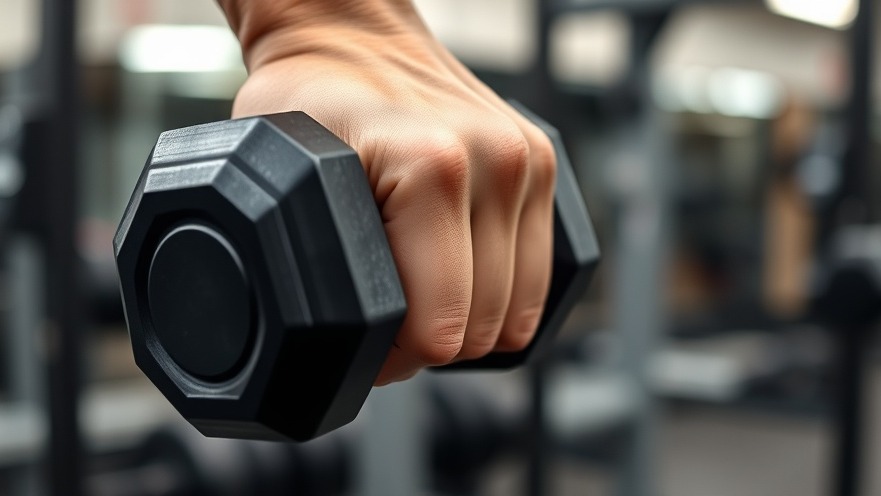
Understanding Grip Strength and Longevity
Grip strength may seem like a simple measure of physical ability, something more often discussed in gyms than at doctors' offices. Yet, research substantially correlates grip strength with longevity and overall health. It's a significant indicator of muscle mass, which is known to decline with age, affecting everything from balance and mobility to chronic disease risk.
The Health Benefits of Grip Strength
Recent studies emphasize that grip strength can reveal much about one’s health status. According to a review published in the journal Clinical Interventions in Aging, grip strength could serve as a biomarker for various conditions. For instance, individuals with strong grip strength tend to have better mood and cognitive function, enhanced sleep quality, and greater bone density. These benefits underscore the broader health implications of maintaining muscular strength beyond just athletic performance.
How to Measure Your Grip Strength
The beauty of grip strength lies in its simplicity—you can easily assess it yourself. To measure your grip strength, you may want to use a tool called a dynamometer, which is widely available online or at fitness stores. By measuring how firmly you can squeeze with your hand, you can establish a baseline for your grip strength and track improvements over time.
Simple Exercises to Improve Grip Strength
Improving grip strength doesn't require a gym membership or complex equipment. Simple exercises can boost your hand and forearm strength. For example, consider incorporating the following into your routine:
Progressive Weight Training: Engaging in exercises that target major muscle groups naturally boosts grip strength as you lift heavier weights. Try incorporating deadlifts and pull-ups.
Farmer's Walk: Simply walk while holding heavy weights in each hand, keeping your core engaged. This exercise combines grip strength training with overall muscle conditioning.
Wrist Rolls: Use a wrist roller device, or simply a weight attached to a rope. Roll the weight up and down to work your wrist and grip muscles effectively.
Why Grip Strength Matters To Everyone
As noted by health experts like Heather Milton and Joanne Donoghue, maintaining muscle mass plays a crucial role in aging gracefully. Aging adults often face strides in muscular strength, resulting in increased frailty and falls. By focusing on grip strength from a young age, residents of any age can fortify their muscular health, potentially increasing their mobility and quality of life.
Future Insights: The Role of Grip Strength in Health Research
As researchers delve deeper into understanding grip strength, we may observe emerging studies linking grip strength to various health outcomes and chronic diseases. A network of health experts emphasizes the conversation around grip strength as more than just a fitness topic, but as an essential area of health science. Strengthening one’s grip is not only advantageous for physical performance but is a meaningful measure of overall health, enabling better quality of life in the later years.
Conclusion: Take Action for Better Health
Incorporating grip strength exercises into your routine provides far-reaching benefits, from improved physical function to potentially longer life. Start measuring your grip strength today and commit to strengthening those muscles. Whether you choose progressive weight training or simple home exercises, every step you take to enhance your grip strength contributes to your overall health.
 Add Row
Add Row  Add Element
Add Element 



Write A Comment